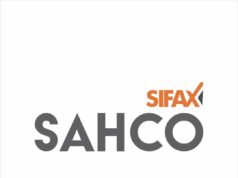.
By Dr. Soji Amusan
In a country now estimated at over 230 million, a burgeoning middle class, and an increasingly mobile workforce, the demand for affordable, reliable, and safe air transport – both domestically and internationally – remains increasingly urgent. For Africa’s most populous nation, it is about time that accessible aviation no longer remains a luxury or symbol of elite privilege, rather, it ought to reflect that it is increasingly becoming an economic necessity and developmental imperative.
Despite Nigeria’s natural advantages, particularly it’s geographical location, large domestic market and youthful population, it’s aviation sector has continuously underperformed. Airlines have been operating under tremendous pressure, contending with high fuel costs, inconsistent regulation, ageing infrastructure and limited access to finance. Many promising carriers have collapsed under these conditions, while foreign lessors and financiers remained hesitant to engage in the market due to perceptions of political risks, regulatory inconsistency, and challenges in asset recovery.
This underperformance has had real consequences. Air travel has consistently been unaffordable for many Nigerians, and lack thereof has proven an inhibition to both business travel and tourism. Despite its relative size, other regional competitors like Ethiopia, Kenya and Rwanda appear to have leapfrogged Nigeria in their respective aviation ecosystems, most notably in terms of strategic investment, connectivity and safety perceptions.
However, the appointment of Mr. Festus Keyamo, Nigeria’s Minister of Aviation and Aerospace Development, has marked a significant turning point. Since assuming office, Keyamo has positioned aviation reform as a national priority, and facilitates efforts to engage institutional coordination and instill stakeholder confidence.
One of the most important reforms, in our opinion, has been the overhaul of Nigeria’s aviation insurance framework. Working closely with the National Insurance Commission (NAICOM), the Minister introduced regulations that allow Nigeria insurers to retain only a portion of aircraft haul and liability risk – freeing up space for foreign reinsurers to participate in the market. This move not only aligns Nigeria’s insurance model with international norms, but it also reduces the financial burden on local underwriters and improves coverage certainty for lessors and airlines.
A crucial change has been the formal recognition of cut-through clauses – contractual provisions that allows to pay foreign lessors directly in the event of an aircraft-related claim. These clauses are common in mature leasing jurisdictions but were notably absent in Nigeria. Their inclusion strengthens Nigeria’s profile as a safer and more predictable venue for asset-backed aviation finance and addresses one of the key concerns voiced by foreign lessors.
Further momentum was gathered in January 2025, when Keyamo led a Nigerian delegation to the Airline Economics Growth Frontiers Conference (AEGFC) in Dublin, Ireland. The conference is one of the world’s premier events for aviation finance, bringing together leasing firms, legal experts, regulators and government officials. Nigeria’s presence was both symbolic and strategic, and was a public reaffirmation of it’s intent to engage with the global aviation community.
The conference offered Nigeria ample opportunity to meet directly with several of the world’s top aircraft lessors, insurers and investment groups. It created avenue for discussions not just centered on Nigeria’s regulatory reforms but also on opportunities for public-private partnerships, infrastructure investment and regional connectivity initiatives of the Federal Republic of Nigeria.
One of the most globally noticeable situations in the industry is the drastic improvement in Nigeria’s standing in the Cape Town Convention Compliance Index. The Cape Town Convention is a global framework geared towards the rights of aircraft financiers and lessors, particularly in connection with repossession and deregistration. Nigeria’s compliance score has risen from 49.5% to 75.5%, marking one of the most significant improvements in the world. For lessors, this signals a growing ability to enforce contracts and recover assets in an event of default, providing reassurance to foreign lessors, who had previously avoided the Nigerian market due to concerns over asset recovery and regulatory clarity.
While the progress is commendable, Nigeria’s aviation renaissance remains a work-in-progress. A number of structural challenges still threaten to slow the momentum if not proactively addressed.
One major huddle is currency volatility. The aviation industry is inherently global and primarily dollar-dominated. Aircraft leases, fuel purchases, insurance contracts and aircraft spare parts are typically priced in U. S. Dollars. For Nigerian carriers, the persistent instability of the Naira poses serious risks to operational stability and efficiency. Sudden exchange rate swings can reduce the reliability of business models and ultimately erode margins.
Infrastructure remains another point of contention. Many of Nigeria’s airports are ageing, congested or lack the modern facilities needed to accommodate growing passenger volumes and next generation aircraft. Investment in air traffic management, runway upgrades, passenger terminals and cargo facilities is urgently needed.
That said, the foundation for long-term success appears being laid. The renewed collaboration between ministries, the Central Bank, regulators and insurers should be intensified and sustained as a national strategy. Private sector momentum, as espoused in the media, is showing confidence and positivity. Nigeria’s largest carrier, Air Peace, is rapidly expanding and modernizing its fleet, adding new destinations like the United Kingdom, United Arab Emirates and South Africa. The airline’s recent acquisition of long-haul aircraft also signals a bold ambition to become a major continental player in the industry.
In order for Nigeria to reap maximum benefits from the various existing Bilateral Air Services Agreements (BASA) and Open Sky Agreements (OSA), her indigenous carriers must have the capability and capacity to compare favourably with the foreign airlines operating the Nigerian routes. Therefore, Air Peace as the fore-runner of the indigenous carriers cannot afford to underperform, not only in the interest of survival. Air Peace must succeed in the larger interest of the nation. In the spirit of pariortism and national pride, Air Peace should be the first choice of all Nigerian passengers, public servants especially, on the Lagos/London route. All companies in the tourism subsector should lay more emphasis on “in-coming tourism” promotion, much more than “out-going tourism”, and advertise the various historical monuments, cultural festivals, indigenous cuisine and local artworks. The tourists will patronise our domestic carriers for local connections and local businesses. Our airlines, domestic and international must be encouraged and assisted to operate very professionally, taking decisions that enhance credibility and profitability, and not basically on propaganda and populist considerations.
For example, the choice of operation to either Gatwick or Heathrow should be carefully considered. The gargantuan difference between the cost of operation in both airports should be reckoned with in the consideration. Heathrow ranks among the busiest and most expensive airports in the world in terms of Direct Operation Costs (DOC). Take-off, landing, parking, handling, maintenance costs and air traffic control charges at Heathrow are humongous in comparison with Gatwick.
The Government, Nigerian Civil Aviation Authority, the media, tourism practitioners and the travelling public, each has roles to play in the national interest. The government should be active in the international aviation arena considering the capacity of Nigerian Airlines to get mutual benefits in major agreements. Government should see to it that our facilities are not second rated in comparison with the global standard. Various actions of the minister should be commended in this area; especially noteworthy is his alleged success in securing government approval of over 980 billion Naira for extensive infrastructure upgrades at airports across the nation. However, in the absence of a National Carrier, which used to be the nation’s eye at IATA conferences with knowledge of various resolutions that are binding on the nation, the minister may find the foremost aviation professional association in the country, known as Aviation Round Table (ART), useful in taking some decision. ART is an assembly of mostly retired eggheads in various discipines in the industry. Most of them are retirees of Nigeria Airways and reputable foreign airlines in the country. Old school, but they have Nigerian aviation in their genes apparently.
The DG of NCAA should be more proactive in briefing the minister properly and timely, especially on technical issues that are under the purview of IATA and ICAO.
NCAA should also be guided on such issues in relation to smooth operation of the airlines. The greatest protection the airlines and passengers need is in the area of safety and security, the raison d’etre of the establishment of NCAA. All airlines, especially the IATA-accredited, have the so-called “Condition of Carriage” (COC), which is a contract between the airlines and the passenger. It is assumed to be in operation once a ticket is issued for a journey and bounding on the both parties. Issues like undue departure delay, short-landed baggage, injuries to person and properties in the cabin are breaches of the Condition of carriage and passengers should be advised to seek redress in courts of law as the case elsewhere, rather than inviting them for arbitration in their office. Liability and determination of compensation are not arrived at arbitrarily in the industry. IATA has binding regulations, which are not unknown to the airlines. It is mandatory that the airlines should have a copy of the COC available at their head office locations. Some airlines do publish part of the condition of carriage in small prints on their tickets. The airlines insurance policy covers such claims.
Looking ahead, the focus must remain on sustained engagement, legal reform and institutional resilience. Provided there is satisfactory and steady improvement in regulatory transparency and continued institutional coordination, there is a huge opportunity to leverage Nigeria’s size and location to position itself as a regional aviation hub, with its airlines connecting West and Central Africa to global markets. This will require not only strong domestic carriers but harmonized regulatory policies across borders, more “Open Sky” agreements and shared infrastructural initiatives across ECOWAS and AFRAA regions.
Soji Amusan, PhD, DBA (Honoris Causa), CEO RiteKonsult Ltd, a former Sales Manager (West Africa), Lufthansa German Airlines, a former National President, National Association of Nigerian Travel Agents Association (NANTA), a former Assistant Director, United Federation of Travel Agents’ Associations (UFTAA), a former Coordinator, IATA/UFTAA Exams for Nigeria and Cameroon, a member Institute of Travel & Tourism Association (Inst.T.T) of England and a Member of the Board of Trustees, Aviation Round Table (ART) sends this from United Kingdom.









